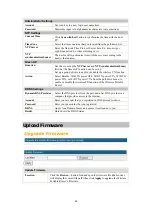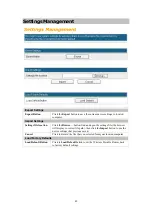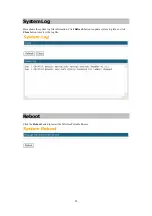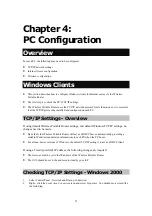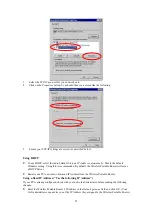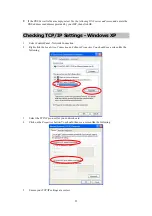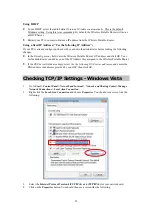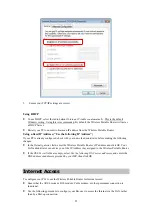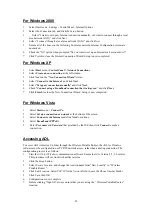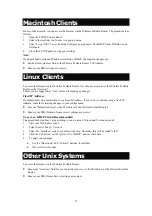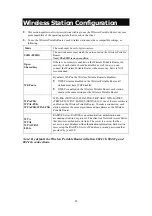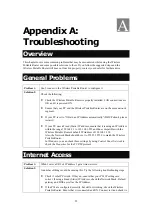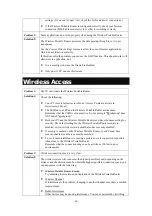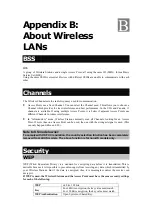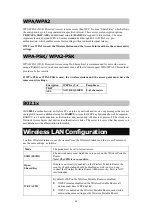
Appendix B:
About Wireless
LANs
BSS
BSS
A group of Wireless Stations and a single Access Point, all using the same ID (SSID), form a Basic
Service Set (BSS).
Using the same SSID is essential. Devices with different SSIDs are unable to communicate with each
other.
Channels
The Wireless Channel sets the radio frequency used for communication.
•
Access Points use a fixed Channel. You can select the Channel used. This allows you to choose a
Channel which provides the least interference and best performance. In the USA and Canada, 11
channel are available. If using multiple Access Points, it is better if adjacent Access Points use
different Channels to reduce interference.
•
In "Infrastructure" mode, Wireless Stations normally scan all Channels, looking for an Access
Point. If more than one Access Point can be used, the one with the strongest signal is used. (This
can only happen within an ESS.)
Note to US model owner:
To comply with US FCC regulation, the country selection function has been completely
removed from all US models. The above function is for non-US models only.
Security
WEP
WEP (Wired Equivalent Privacy) is a standard for encrypting data before it is transmitted. This is
desirable because it is impossible to prevent snoopers from receiving any data which is transmitted by
your Wireless Stations. But if the data is encrypted, then it is meaningless unless the receiver can
decrypt it.
If WEP is used, the Wireless Stations and the Access Point must have the same security settings
for each of the following:
WEP
64 bits, 128 bits.
Key
For 64 Bits encryption, the key value must match.
For 128 Bits encryption, the key value must match.
WEP Authentication
Open System or Shared Key.
B

